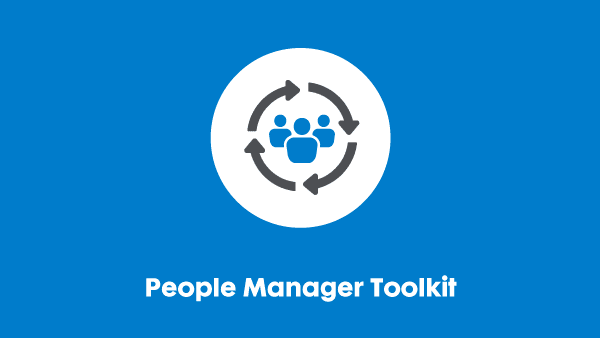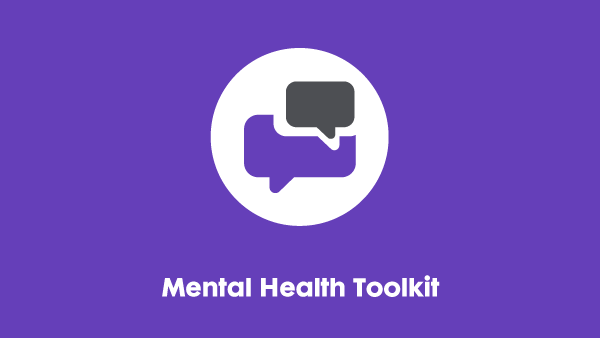Last updated: 19 September 2024
Employee wellbeing and resilience
Physical health can be a pillar to support good mental health. Here are some tips on what you can do as a manager to support your team’s physical and mental health.
Physical health and mental health
The mind and body are linked, so tell your teams about any workplace initiatives, both in the workplace and for people working from home.
For people who come into the workplace, you might offer:
- Free fruit
- Healthy food options in the cafeteria
- Initiatives to exercise more such as taking the stairs – for those who can
- Lunchtime exercise sessions.
For people who work remotely – either from home, or who work on the road or at another site – you could consider:
- Online exercise sessions or fitness challenges for people to participate in wherever they are. Remember to make them inclusive so everyone can participate. Choose session leaders who demonstrate an understanding of different inclusion needs.
- Remote social gatherings such as online book or film groups, or craft, gardening or baking groups where people can share their opinions, achievements and challenges.
Remind everyone regularly about:
- Health checks from your health insurance provider
- Employee Assistance Programme (EAP) to remind people that support is available if they need it
- Debt, bereavement or other counselling available
- Physiotherapy or help with private health consultations
- Workstation assessments and advice on posture
- Any apps you have available to support mental health and wellbeing.
Managers have a role in setting the tone and expectations in your own team, so you should ensure that you and the people who work for you take proper breaks. Encourage people to take their lunch breaks and to exercise if they can by providing them the time to do so. Staying physically healthy helps people to be mentally healthy.
Tip
If there isn’t anything official where you work, take the initiative and ask if you can help your employer organise and run some wellbeing sessions where mental health is discussed.
Many mental health charities have campaigns and material on their websites that you could use. If you have an Occupational Health provider or EAP, they too may be willing to be involved.
Remote and hybrid workers
It’s important that members of your team feel just as supported when working remotely. It may seem harder to support your team’s mental health if you’re not working in the same space as them – but there are steps you can take.
Stay in touch
Working in different areas means you may have to be more proactive about staying in touch.
What’s appropriate will depend on the team and the individual. Here are some general tips:
- Have regular team catchups and one-on-one catchups with members of your team. Ask your team how they are doing and if they need any support.
- You could consider creating group chats on WhatsApp or Teams (for example) to allow your team to stay in touch and have the more casual conversations that might have happened in the office.
- That said, some employees working remotely may struggle with communication ‘overload’ with all communications being emails, messages and video calls. Allow employees to disconnect for periods so they can concentrate.
Healthy working habits
Encourage remote-working members of your team to maintain healthy working habits, such as:
- Taking regular breaks from screens – ideally with some form of exercise (for example, a 15-minute walk outside)
- Sharing advice about posture
- Workstation assessments
- Logging out of work emails after finishing work – it’s important to have boundaries about when work starts and ends.
Set an example
Your aim is to transform the working environment into somewhere that is positive about wellbeing and mental health. As a manager you want your team to feel that you will be supportive if they are open about their mental health and any problems they might be having. You can set an example by:
- Discouraging competitive busyness: for example, “You’re busy? You should see how busy I am!”
- Encourage lunchtime breaks away from desks and computers and phones. If you are together in the workplace, you could suggest that you all eat your lunch together in a canteen or staff tearoom, or outside – preferably somewhere with greenery – when the weather is good. Remote workers can also lunch together, but it can be good to have a break from the screen and go outside.
- If you do have lunches or breaks together with your team, try to avoid talking about work. Consider having a rule that work talk is banned on team lunches.
- Don’t send or respond to emails out of hours, making others think that they have to be “on 24/7” and respond immediately. Alternatively, if you all work different hours or are in different time zones adding the following to your emails saying: “I’m sending this email during my working hours which might not be the same as yours, and so am not expecting an immediate response.”
- Most of all – get to know the people you work with.
You might think that it isn’t down to you or even your job – after all you have your own targets and objectives to meet. Perhaps you think you’re too junior to make a difference. It’s probably true that, unless you are the CEO, you won’t be able to change things all on your own. However, as a manager, no matter how junior, you can take steps towards making your workplace (wherever that is) a better place for everyone – including those with mental health conditions.
It is your job to ensure that people working for you are productive. If your team feels that you are a positive and supportive manager, they will be happier and happier teams are more productive teams. It might even improve your own happiness levels!
Good work can support mental health
Finally, there are some things all the research agrees makes for happier people and happy people make for happy workplaces:
- Control over your time and work
- Meaningful work
- Social interaction – sense of belonging and community with colleagues
- Good sleep, nutrition and exercise
- Shorter commuting times
- Daylight and nature.
These might not be within your control at work but perhaps there are small steps you can start taking.
Advice Service
For advice and guidance tailored to your organisation or team, contact BDF’s Advice Service:
Telephone: +44-20-7403-3020
Email: advice@businessdisabilityforum.org.uk.
If you require this content in a different format, contact enquiries@businessdisabilityforum.org.uk.
© This resource and the information contained therein are subject to copyright and remain the property of the Business Disability Forum. They are for reference only and must not be copied or distributed without prior permission.

